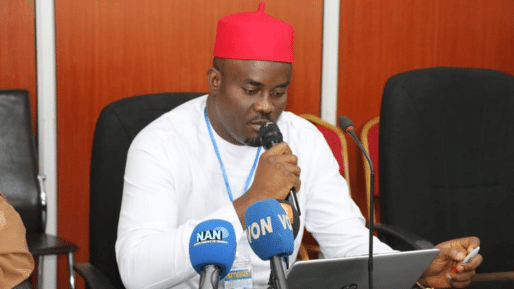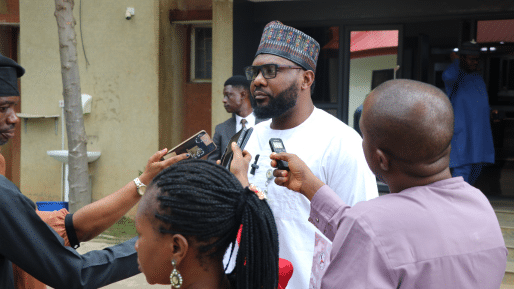Nigeria’s energy sector stakeholders are in the final stages of updating the energy efficiency requirements for air conditioners. Nigeria is estimated to have the largest market in Africa for these products, so progress there can have an outsized impact in driving markets more broadly toward cooling appliances that are more affordable to operate while reducing strains on the electricity grid and the plant.
The review process of the country’s Minimum Energy Performance Standards (MEPS) and energy label for air conditioners is spearheaded by the Standards Organisation of Nigeria (SON) in collaboration with UNEP’s United for Efficiency (U4E) and the Energy Commission of Nigeria (ECN), with funding support from the Clean Cooling Collaborative as part of the “Up Energy-Efficient and Climate-Friendly Cooling in Nigeria’s Nationally Determined Contribution Revision” project.
During the one-day SON Technical Committee (TC) meeting held in June in Abuja, the director-general of SON, Dr. Ifeanyi Chukwunonso Okeke, emphasised the importance of updating the Nigerian energy efficiency standard to reflect current technological advancements in the air conditioning sector. This effort, aimed at positioning Nigeria competitively on the global stage, holds the promise of significant energy savings and a more sustainable future.
“This revision is not just about meeting today’s needs but anticipating and preparing for the future to enable Nigeria to participate in continental and global trade—the African Continental Free Trade Area (AfCFTA) and the World Trade Organization (WTO). By setting appropriate energy efficiency standards, we contribute to global efforts to combat climate change and use energy resources more efficiently. We are also enhancing Nigeria’s reputation as a leader in sustainable energy solutions, potentially attracting more international investments and partnerships,” he said.
Various government ministries, departments, agencies, and the private sector, including manufacturers and distributors, academia, enforcement bodies, and border control agencies, participated in the technical committee meeting to deliberate, revise, and finalize the proposed MEPS and energy labels.
Represented by the deputy director of standards development, Engr. Olalekan Omoniyi, Okeke also urged stakeholders to contribute significantly to the energy efficiency landscape, setting a standard for other African countries to follow. “Your active participation in this process will make our efficiency standards truly representative of our collective efforts and aspirations,” he added.
In his goodwill message, U4E’s Energy Efficiency and Cooling Specialist, Mr Marco Duran, applauded the MEPS review process, stating it will set Nigeria’s air conditioning market on the right track towards energy efficiency. Duran noted that this initiative would help Nigeria achieve its National Cooling Action Plan and Nationally Determined Contributions. He commended SON for its leadership in the review process and ECN for establishing the process and recommendations.
ECN director-general Dr Abdullahi Mustapha explained that reviewing the Nigerian efficiency standards for air conditioners is a crucial component of the project “Scaling Up Energy-Efficient and Climate-Friendly Cooling in Nigeria’s Nationally Determined Contribution Revision.” He highlighted that this collective effort, including stakeholders from various sectors, aims to enhance energy efficiency and promote climate-friendly cooling solutions, significantly contributing to Nigeria’s climate goals and sustainable energy access.
The chair of the Technical Committee on Household Appliances, Engr. Nelson Chukwu described the committee’s mission as enhancing the energy efficiency of household appliances, particularly air conditioners, to promote sustainable energy consumption nationwide. He stressed that the initiative is not merely a regulatory exercise but a crucial step towards achieving broader goals of energy conservation, environmental sustainability, and economic resilience.
“Our work is a critical piece of the puzzle in building a future where energy is used wisely, industries thrive in harmony with the environment, and every Nigerian enjoys the benefits of responsible energy consumption,” he said.
Boosting capacity of stakeholders on energy efficiency and climate cooling
Following the successful SON Technical Committee meeting, ECN, SON, and U4E held a workshop in Lagos from June 3 to 5 to boost stakeholders’ capacity with context on the critical importance of upcoming energy efficiency Nigerian standards.

Miquel Pitarch explained that the new standard will use the Seasonal Energy Efficiency Ratio (SEER) customized for the Nigerian Climate
The workshop aimed to foster alignment on implementing the revised MEPS and labels standard. Engr. Ismaila Lawal, the Group Head of Electrical Electronics, displayed the new label and explained that all air conditioner manufacturers and importers must comply with a proper display of the rating of their products, which ranges from one to five stars depending on the performance according to the reference test standards. The new label becomes mandatory once the Standards Council of Nigeria approves the final draft, which is expected to be considered in the first quarter of 2025.
In the second session, Miquel Pitarch from UNEP explained that the new standard will use the Seasonal Energy Efficiency Ratio (SEER) customized for the Nigerian Climate rather than the more simplistic Energy Efficiency Ratio (EER), which would improve the quality of information to consumers when informing about the energy efficiency of different air conditioning technologies. He also described the scope of the standard, which includes window types, split units, standing indoor units, and centralized units with up to 20 kW of cooling capacity, among others.
In total, almost 50 people took part in the workshop. The participants emphasized the need to continue the ongoing efforts of the project to raise awareness among a broader audience than those able to join in person for the event, including the need to directly reach young professionals through educational institutions. They also suggested continuing to engage the public, technical committee members, and other sector stakeholders to strengthen compliance with the new standards and utilizing social media and electronic media for consumer education on label interpretation once approved.
Altogether, the TC meeting and subsequent training workshop were key milestones toward the finalization and future implementation of new MEPS and labels for air conditioners in Nigeria.
For further information on this topic, contact Miquel Pitarch (miquel.pitarch@un.org).






Nigeria’s move to update energy efficiency standards for air conditioners is a commendable step toward a more sustainable future! 🌱💡 With the country being a major player in Africa’s cooling market, these new Minimum Energy Performance Standards (MEPS) will not only enhance energy efficiency but also help reduce strain on the electricity grid. 🔌🌍 It’s exciting to see collaboration among various stakeholders, including government agencies and industry experts, working together to drive this initiative forward. By setting high standards, Nigeria can pave the way for other African nations and contribute significantly to global climate goals. Let’s keep the momentum going! 🙌🌟
Nigeria is finalizing new energy efficiency standards for air conditioners, aiming to reduce electricity demand and operating costs. As Africa’s largest AC market, this move could influence wider adoption of energy-saving cooling appliances across the continent.